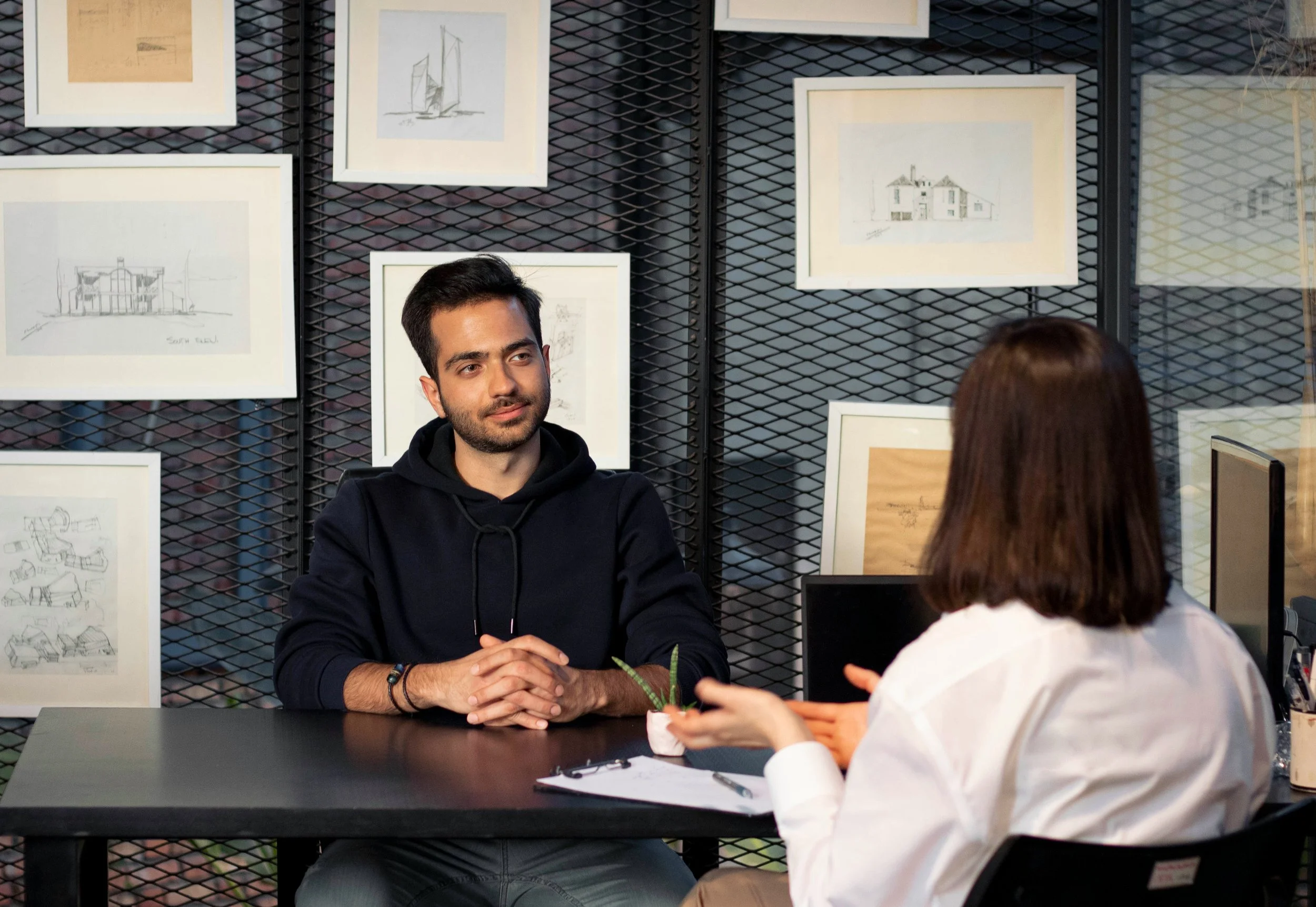Delivering Government Interviews: Essential Tips for Candidates
Introduction
Your interview is right around the corner and you’re feeling confident with the amount of progress you’ve made in preparing for it. You understand the 30-minute government interview format and have applied our 3-step interview preparation formula (if you haven’t, start with Part 1 of this guide) Still, you’re asking yourself:
What if I fumble or blank during the interview?
What if I go into too much detail – or not enough?
What if they ask me something I don’t know how to answer?
These thoughts are completely normal but shouldn’t become an obstacle to your success. This guide offers straightforward strategies that you can use during your government interview to stay composed, structure your responses effectively and walk out feeling confident.
We’ll cover:
How to structure your response in four steps
How to find the right level of detail in your responses
Essential interview techniques to elevate your interview performance
Venturing into government contracting for the first time can feel like stepping into a world of acronyms, panels and unfamiliar processes. While the opportunities are immense, offering rewarding work and professional growth, the path to securing your first government contract role can be opaque.
How to structure your response
It’s perfectly fine to take 5-10 seconds to gather your thoughts. To deliver a clear and compelling answer, follow these four steps:
1. Stop and Listen
Ensure you understand the question completely – if not, ask the panel to clarify or explain the question again:
Can you please repeat the question?
Can you please reframe the question?
Just to clarify, are you asking about [specific aspect]?"
2. Organise
Mentally map out your STAR response or buy yourself some time if you need to think about it:
That's a great question, let me think about that one.
Thank you for asking this, I'd like to give you a comprehensive answer.
Let me share an example that demonstrates this well.
I have a good example of this from my previous role.
3. Answer
Deliver your response clearly and concisely by communicating the approach in which you plan to respond:
Let me walk you through a specific situation where...
I'll break this down into the key steps I took...
The situation was [context], and here's how I approached it...
To give you the full picture, let me explain the background first...
This reminds me of a project where I successfully...
4. Relate
Connect your answer back to the role requirements after each response:
This experience directly relates to this role because...
The skills I demonstrated here would be valuable in this position for..."
I believe this approach would be particularly relevant when...
This aligns with the requirements you've outlined, specifically...
I'd apply this same methodology in this role by...
Given the challenges you've described for this position, this experience shows...
This way, you understand exactly what is being asked, take a moment to craft a concise response and address its specific intent.
How to find the right level of detail in your responses
If you are uncertain about the depth of response the panel is expecting, don’t guess – ask. For example:
➝ "How in-depth would you like me to go in my response?"
Rather than second-guessing whether the panel is looking for a detailed response or a high-level overview, let the panel guide you. From experience, it’s far better to ask than assume.
Alternatively, after answering a question, you can confirm with:
➝ "Would you like me to go deeper into the scenario or my approach, or has my response covered what you're looking for?"
Government interviews are designed to be fair and consistent, giving every candidate the same opportunity to demonstrate their capabilities. Your job is to make the most of those 30 minutes by being prepared, authentic and confident.
The panel wants you to succeed. They're looking for the right person to join their team, just as you are looking for the right place to work. When you walk into that room prepared and confident, you're not just a candidate – you're presenting yourself as a future colleague who can help them achieve their goals.
Essential interview techniques to elevate your interview performance
The Bridge Technique
If asked about experience you don't have, be honest. Then bridge your response by relating it to another experience where you made an impact using similar skills. For example:
➝ “While I haven't had direct experience with [specific area], I have successfully [related experience] which required similar skills such as [relevant capabilities].”
The Flag Technique
Make your responses impactful and memorable by clearly flagging the key factors that drove your success in each scenario. This structured approach helps interviewers understand your thought process and decision-making. For example:
➝ “There are three main reasons why this approach was successful...”
The Evidence Technique
Strengthen your answers by including measurable results to highlight the impact of your work. For example:
➝ “This resulted in a 30% improvement or "We delivered the project two weeks ahead of schedule.”
Conclusion
Succeeding in a government interview is less about perfection and more about preparation, structure and genuine confidence. By framing your responses effectively, providing the right level of detail and applying simple yet powerful techniques, you’ll be able to make the most of those 30 minutes.
The panel is looking for someone who can contribute to their team’s success – with the right approach, that could be you. Go in prepared, stay authentic and treat the interview as an opportunity to demonstrate not only your skills, but also the value you bring.
For additional guidance or personalised support before or after you reach the interview stage, connect with our team – we’re here to help.
Have further questions? Connect with us today.
02 6147 6717

